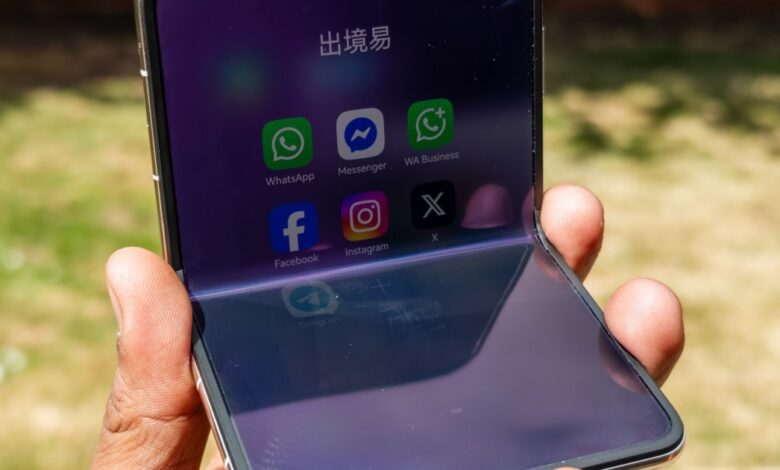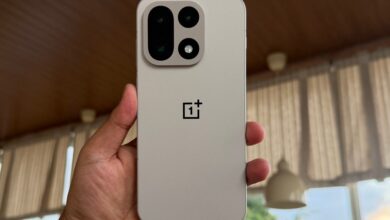Is HarmonyOS a Game-Changer? My Hands-On Review Compared to iOS & Android!

In the past seven years, Huawei has experienced notable ups and downs as CEO Richard Yu's emotional keynote at CES 2018. Once a leading global brand, Huawei faced major challenges when it was placed on the US Entities list. This action limited its access to top processors and technology.
To adapt quickly, Huawei turned to HarmonyOS, an operating system it had been developing for several years. This platform now powers many of its devices, including wearables, tablets, and Internet of Things (IoT) products.
Despite facing restrictions, huawei continues to innovate in the smartphone market. Notable devices like the world's first tri-fold smartphone—the Mate XT Ultimate—and the tablet-sized flip phone—the Pura X—are both powered by HarmonyOS.
after testing these devices, one might wonder if HarmonyOS can compete with iOS and Android. The answer is complex due to two different versions of HarmonyOS available today.
Understanding HarmonyOS
Following Richard Yu's keynote speech at CES 2018, Huawei sped up its plans for a homegrown operating system. In June 2019, it officially introduced HarmonyOS. This platform aims to be more than just a smartphone OS; it's designed as a unified system that can operate across all types of devices within the Huawei ecosystem.
According to Counterpoint Research, HarmonyOS has become the third-largest smartphone platform globally with about 4% market share. More importantly for now is its growth in China where it recently overtook iOS as the second-largest platform in this massive market.
This growth stems from innovative hardware combined with HarmonyOS’s capabilities. While still powerful for smartphones alone, it also supports various other devices seamlessly—including cars like the AITO M5 co-developed by Huawei.
Differences Between Versions
The Pura X represents an significant moment for Huawei’s software journey. Earlier versions of harmonyos included Android libraries pre-installed on devices which allowed easy access to Google services through third-party developers like MicroG.
As a result,users could enjoy full Play Store functionality on phones like Mate XT Ultimate despite not having native Google support—though some quirks remained in user experiance.
HarmonyOS Next marks an evolution from previous iterations by focusing solely on native apps without pre-installed Android components. Users must rely on third-party app stores for popular applications—a familiar yet challenging situation for new users transitioning from other platforms.
App Availability: A Mixed Bag
To assess how well HarmonyOS Next performs currently regarding app availability I installed EasyAbroad following online instructions provided via video tutorials. After installation completed successfully I found suggestions for Western apps that could be added next—indicating progress made through MicroG services tailored specifically towards this version of their OS—but does it have everything needed?
Here’s what I discovered: Popular apps such as Google Maps and YouTube are accessible along with others like Airbnb or Amazon; however certain key applications remain absent including most banking options or streaming services such as Netflix or Hulu which may limit usability considerably depending upon individual needs/preferences when using mobile technology daily!
Social media platforms including Facebook Instagram Messenger twitter (X) are present while TikTok appears listed only under Mandarin language settings potentially limiting global reach further complicating matters surrounding accessibility issues overall! Messaging tools such WhatsApp telegram Signal etc., remain functional alongside food delivery options via Uber Eats DoorDash just Eat Deliveroo among others making life easier despite limitations elsewhere!
while earlier versions offered broader selections overall performance remains smooth across available choices ensuring satisfactory experiences even amidst gaps present within offerings themselves!
Familiarity Breeds Comfort
If we set aside concerns about missing apps what else stands out? Given that this latest iteration features substantial architectural changes there hasn’t been enough time yet devoted towards porting additional software over fully into new habitat created here either way!
Assuming developers manage bridging those gaps effectively moving forward then perhaps we’ll see greater competition arise against established players already dominating marketplace landscape today! Many similarities exist between interfaces seen throughout various brands utilizing similar designs reminiscent Honor Oppo etc., creating intuitive user experiences worth exploring further down line too!
Investing into entire ecosystem surrounding these products means enjoying benefits comparable if not superior compared directly against rivals’ offerings currently available out there right now too! With over one billion active units running across diverse formats plus reported involvement exceeding two million developers working diligently behind scenes chances increase significantly regarding future expansions occurring soon enough thereafter ultimately benefiting everyone involved long-term basis altogether eventually leading toward brighter horizons ahead indeed…





